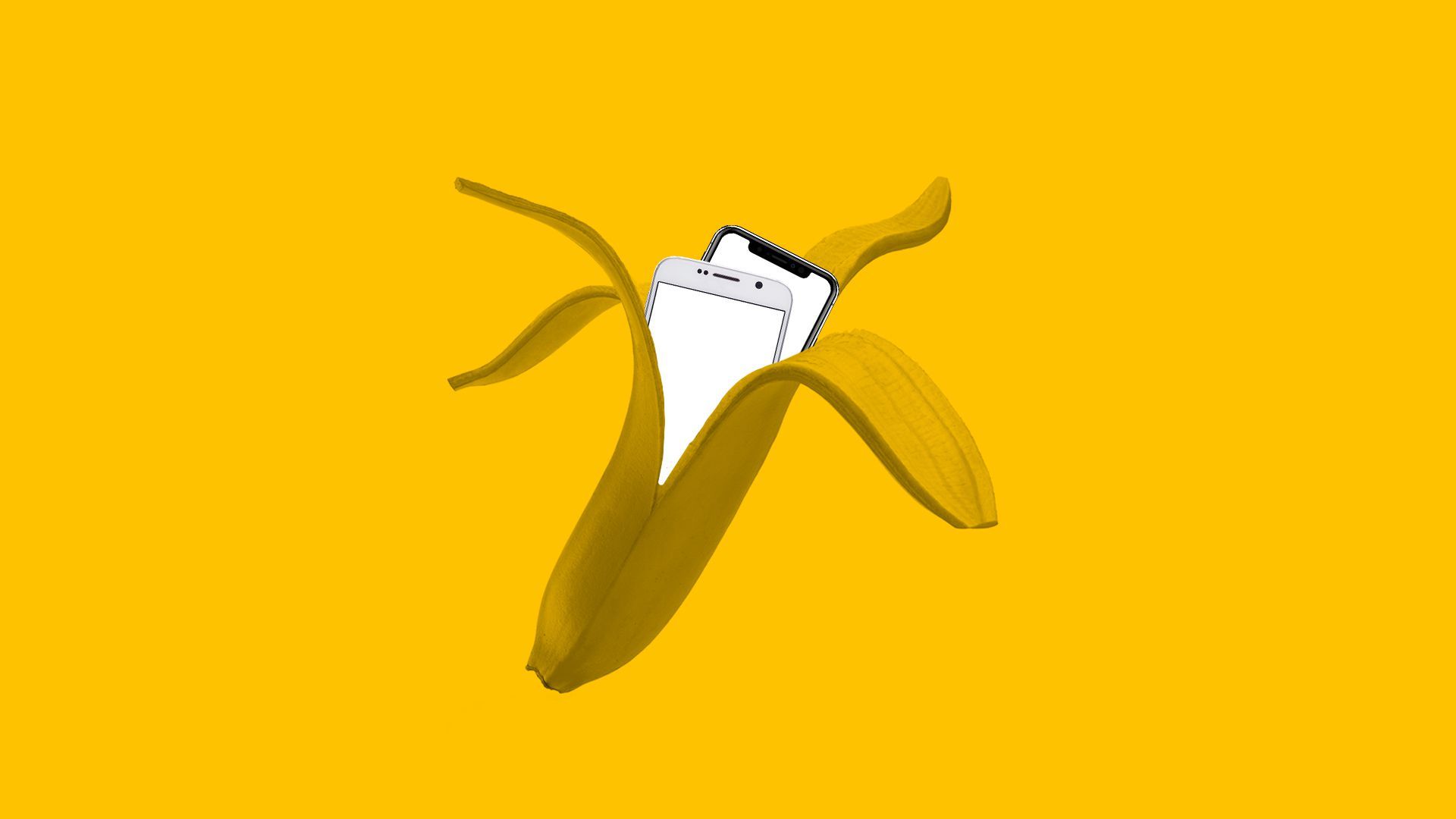The Privacy Divide: You pay Google with data, Apple with cash
Add Axios as your preferred source to
see more of our stories on Google.

Illustration: Rebecca Zisser/Axios
Although the choice between iOS and Android may sometimes seem like a question of aesthetics, the reality is that the different business models of Apple and Google lead to fundamental differences for your privacy.
Why it matters: Because of the way Google monetizes user data, Android phones can cost hundreds of dollars less than iOS devices. The more you spend, the more likely you are to use a device with more privacy protection and less data collection.
Key differences:
- iOS anonymizes much of the data sent back to Apple — although the company still collects a broad swath of information.
- Apple markets privacy as a key feature of its products.
- Android phones, by design, send a lot more data back to Google, including location and other sensitive information, much of which powers the company's vast ad-targeting network.
Between the lines: Even within the Android ecosystem, there's inequality. Because there are so many different Android-based products, the popular high-end devices are subjected to more rigorous testing by app developers. So low-cost devices may have more glitches.
By the numbers: Studies have shown that the more you earn, the more likely you are to own an iOS device.
- A 2013 Pew study found that people with household incomes of $74,999 or less were more likely to say their phone was an Android device than an iPhone.
- The opposite was true of people with incomes of $75,000 or higher.
The big picture: As business models evolve, privacy is more often seen as something you pay for. That’s a concerning trend for privacy advocates.
- “I think many folks would say that runs the risk of marginalizing the poor,” said Allie Bohm of the public interest group Public Knowledge.
- Internet service providers experimented with so-called pay-for-privacy plans, where you get a discount if you agree to data collection, but later pulled back on those efforts.
The bottom line: Google isn’t interested in changing its data-driven business model. It does lead to more affordable devices, but those savings can come at a cost to privacy.

